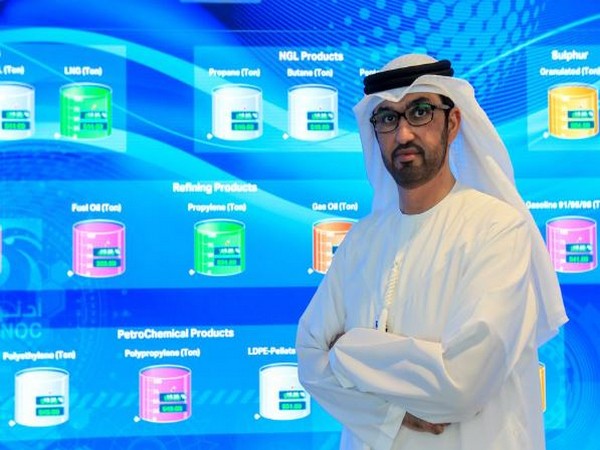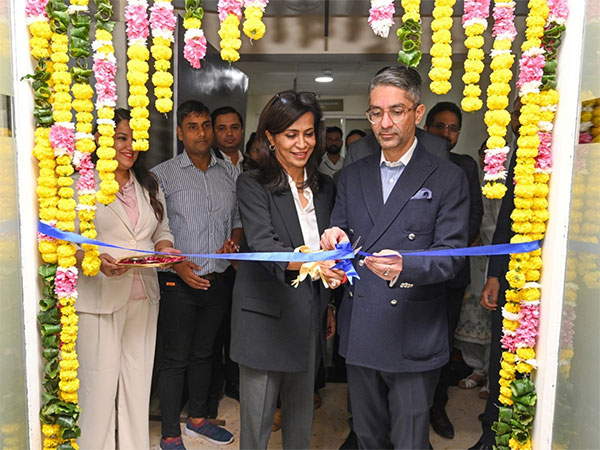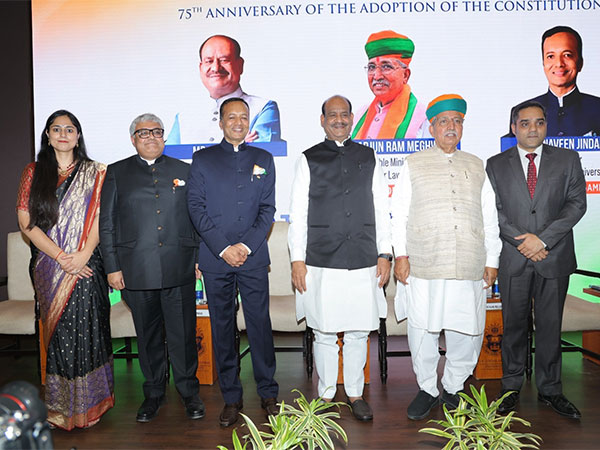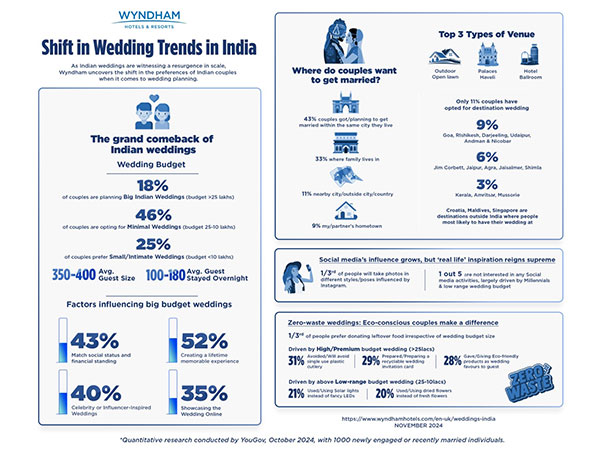COP28 must deliver for the most vulnerable: Al Jaber
Jun 16, 2023
Bonn [Germany], June 16: COP28 President-Delegate, Dr Sultan Al Jaber, met with heads of delegations and key negotiating groups including those from the Least Developed Countries (LDC) and Small Island Developing States (SIDS) at the Bonn UN Climate Change Conference, being held in the run up to COP28, emphasizing the need to engage and listen to all voices in the climate change discussion-especially those of the Global South. The conference, taking place in Bonn, 5-15 June, is hosting discussions on more than 50 agenda items.
In framing the meetings in Bonn, Dr Sultan said "we will reach out to engage every community, seek to include the active participation of the under-represented, including young people and indigenous peoples. And we will give the space and enabling environment to discuss, debate and align on every mandate across every climate pillar." During his meeting with the delegates from the G77 + China Group, Dr Al Jaber said, the G77 members have a special contribution to make by helping shape ambitious negotiated outcomes, a transformative action agenda and a just and equitable energy transition that leaves no one behind.
For this, climate finance is critical, with Dr Al Jaber emphasizing his commitment to reform global financial institutions, to unlock more concessional finance, to attract much more private capital. He underscored that COP28 will be the first-time a G77 Summit is hosted at a COP. Dr Al Jaber also engaged with the Arab Group and various delegates from SIDS and highlighted the importance of driving tangible changes to deliver real climate action that leaves no one behind. Adaptation, he said, is a critical focus for the region - securing resources for countries to adapt to the adverse effects of climate change, including those associated with food and health.
"Everyone is affected and the most vulnerable communities who have done the least to cause climate change, are the most affected. Arab countries only contribute 5% of global emissions yet are among the hardest hit by climate impacts. Temperatures rising across Middle East and North Africa region almost twice as quickly as rest of world", added Dr Al Jaber. Building on these comments, Razan Al Mubarak, UN Climate Change High-Level Champion highlighted her longstanding commitments to nature and biodiversity and the critical role they will play in delivering a successful outcome.
She also emphasized the importance for inclusion to cut across every aspect of the COP process especially those most vulnerable to ensure that every voice is heard and that every stakeholder feels empowered to participate in the shared commitment to combating climate change. Delegates from member states of the African Group of Negotiators (AGN) met with Dr Al Jaber. He pointed out that Africa is rich in clean energy resources - including wind, solar, hydropower and geothermal - providing the African continent with huge potential for low-carbon growth and sustainable development.
But that this will only be feasible if finance, technology, and capacity building is made available through investment that flows at scale, making a just transition a reality. "It is critical that we build on the successes of COP27 to focus on the needs of the most vulnerable communities and make transformational progress across mitigation, adaptation, finance and loss and damage," he said. "The phase down of fossil fuels is inevitable. The speed at which this happens depends on how quickly we can phase up zero carbon alternatives, while ensuring energy security, accessibility, and affordability." Dr Al Jaber also listened to the priorities of the Indigenous Peoples, the role they can play in the COP process, and assured them that that their voices and those from marginalized communities are being heard.
He noted that Indigenous Peoples represent just 5 percent of the global population but protect 80 percent of the world's biodiversity. The role of Indigenous Peoples as custodians of nature will be recognized by an "Indigenous Peoples Pavilion" at COP28. During his remarks at the Constituency Roundtable, the President-Designate said: "We will prioritize an inclusive approach to guide the highest level of ambition in our response to the Global Stocktake, ensuring a just and balanced energy transition and providing space for discussion, dialogue and consensus on the role of fossil fuels", adding "We are committed to ensuring all groups, all stakeholders, are fully engaged.
We need a COP of action, a COP of solidarity, and a COP of unity", added Dr Al Jaber. In his remarks to the Heads of Delegation of all Negotiating Groups and Parties under the UNFCCC, Dr Al Jaber said: "The COP28 Presidency recognizes the views of many in this room that the Global Stocktake, and by extension COP28, must be a turning point. We must respond to the Stocktake with a pragmatic and effective way forward to achieve the goals of the Paris Agreement." He further added: "Many of you have devoted your entire careers to this cause. You know what is at stake. Many of us remember that moment in Paris when the world chose to take a different path to a better, sustainable zero carbon future.
We know we aren't moving fast enough, but we also know that we have the power to make the difference, if we act in solidarity." Young people will be at the forefront of addressing the climate challenge, Dr. Al Jaber told the youth delegation, which is why COP28 will be putting a special focus on empowering youth. He introduced COP28's Youth Climate Champion, Shamma Al Mazrui, who stressed the importance of including youth in all conversations around climate change. Al Mazrui also headlined the first ever Youth Stocktake event; an assessment of the challenges for youth inclusion in UNFCCC processes and a roadmap for the future.
The COP28 Presidency also met with SB Chairs Ambassador Nabil Munir and Harry Vroels and various other delegation heads attending a reception at the Bundeskunsthalle museum. "At COP28, we are going to be laser-focused on concrete and ambitious solutions that will allow us to bridge the gaps by 2030. And we will include all stakeholders to drive an inclusive plan of action that gets us moving in the right direction. We need to shift from incremental steps to transformational progress that delivers for everyone, everywhere. And that work begins right here in Bonn."
Source: Kuwait Times








